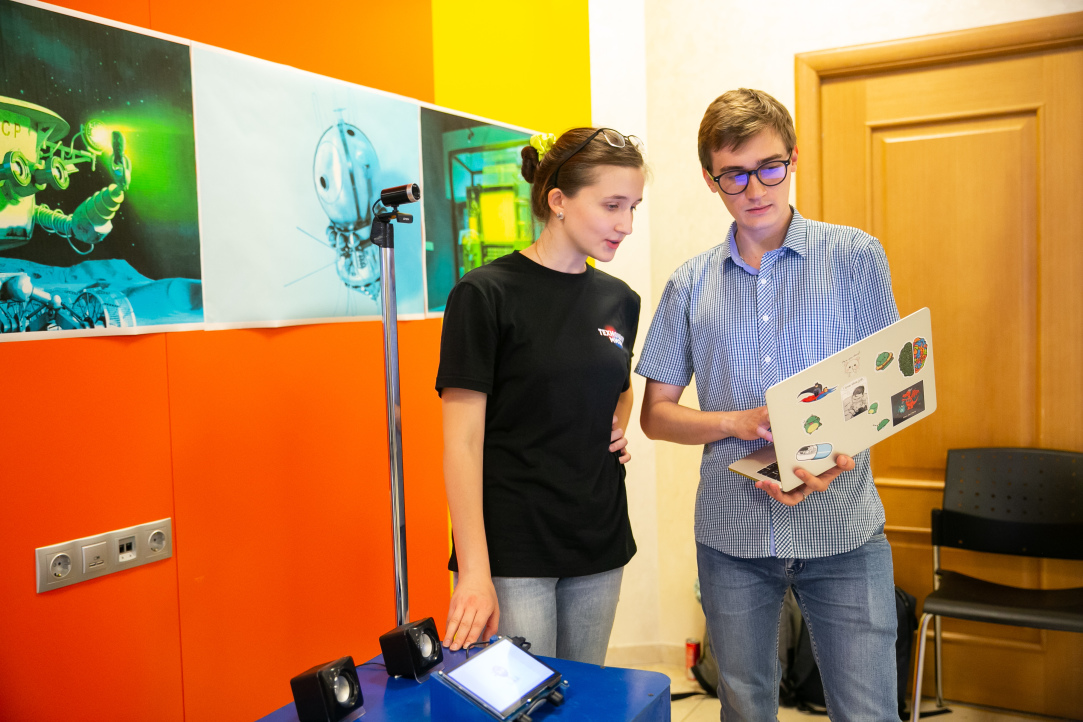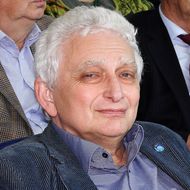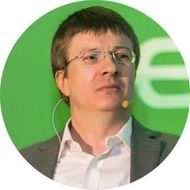HSE Students to Develop Energy-Efficient IoT Devices in Cooperation with MTS

HSE University and MTS have launched a joint project to develop IoT devices (NB-IoT) within the framework of the Internet of Things and Cyber-Physical Systems Master’s Programme and as part of the project activities undertaken by students of HSE’s Tikhonov Moscow Institute of Electronics and Mathematics. Students will have access to the equipment and the network in order to develop energy-efficient devices, while their professors will be provided with expert and advisory support from the MTS specialists.
HSE received 20 starter kits from MTS to develop energy-efficient IoT devices. These kits allow fast mastering of the NB-IoT network thanks to the open-source code, access to the IoT platform and compatibility with the Arduino platform. The development kit (DevKit) includes an appropriate number of cards, wires, microcontrollers and antennas with PC connectivity, access to the IoT platform, one-year unlimited access to the NB-IoT network, and a built-in SIM chip.

Evgenii Krouk, Academic Supervisor, Moscow Institute of Electronics and Mathematics, HSE University

The Russian university community has made significant headway in the development of innovative wireless communication systems and IoT. Broad cooperation between universities and leading telecommunication companies has a synergy effect, enabling universities to use modern equipment for scientific research and improving the quality of the educational process. Companies, in turn, enjoy access to new innovative ideas and solutions by training highly qualified personnel. We welcome MTS as a pioneer of such cooperation, and we are confident in its excellent prospects.
NB-IoT is an energy-efficient communications network for IoT. It allows devices to work for up to 10 years without battery replacement, and it is also characterized by an improved penetration rate that provides a stable signal even in poorly-accessible areas, such as basements, which are difficult to be reached by other communication standards. Unlike other LPWANs, NB-IoT operates in the licensed frequency spectrum through mobile networks, which guarantees data transmission security. Moreover, MTS applies SCEF (Service Capability Exposure Function) element in its network architecture, which allows data transmission from the IoT device to the platform without using IP addresses, thereby providing additional improved security of the transmitted data.
MTS has the largest NB-IoT network in Russia: it operates in more than 70 regions. In 2020, the number of devices connected to the NB-IoT network more than doubled. The main consumers are resource providers, companies in the housing and public utilities industries, and manufacturers of "smart devices". According to and order issued by the Russian Ministry of Communications, NB-IoT technology is foundational for the construction and development of IoT-friendly communication networks in Russia.
Mikhail Kozlov, Director of the IoT Department, MTS

Energy efficient NB-IoT devices are already in demand in the fields of real estate, housing and public utilities, security, smart city, industry and many other sectors. They will become the main driver of IoT development in Russia in the next three to five years. As the leader of this market, one of MTS’s goals is to provide the most comfortable conditions for developers, both beginners and experienced professionals. DevKit offers solutions that facilitate data transmission, storage and processing, and device operation. The kit provides everything you need, including integration with the MTS IoT platform. Training programs we are preparing in cooperation with universities will be based on the practical work with the network. As a result, students will be able to create their own prototypes of interconnecting devices right now.
See also:
‘It’s Important to Me Not to Rest on My Laurels’
Uliana Kisataeva, a student at the HSE Graduate School of Business, was one of the winners of the UN Global Compact PRME 2025 Business Case Competition supported by the United Nations. As part of the competition, Uliana presented a digital platform called Green B2B Match, which can help businesses reduce their carbon footprint and contribute to the development of responsible consumption. In an interview with the HSE News Service, she spoke about her project, the competition, and her victory.
HSE University Presents Smart Orthosis at Hope for Technology Forum
On July 10–11, 2025, Moscow hosted the 10th Hope for Technology National Forum of the Rehabilitation Industry and Universal Design. The event was aimed at discussing innovative achievements in the rehabilitation industry. The MIEM Student Design Bureau and the HSE Institute for Cognitive Neuroscience presented a smart orthosis, which was developed at the request of orthopedists.
Real Tasks and Direct Interaction with Employers: HSE School of Foreign Languages Holds Poster Session
For the second time, the HSE School of Foreign Languages has held a defence of specialised projects developed by fourth-year students of the Bachelor’s Programme in Foreign Languages and Intercultural Communication. Representatives of major companies and organisations that support the school’s project activities gathered to evaluate the projects during a poster session.
Scientarium: Integrating Student Scientific Associations and HSE University Projects
In early July, the Voronovo Study Centre hosted Scientarium, an off-site session for representatives of HSE University student research communities organised by the university’s Centre for Student Academic Development and Unit for the Popularisation of Science. More than 50 students from 10 scientific student associations and three campuses took part.
From Ingenious Fungi to Post-feminism: HSE University Hosts Season’s Last Science Battles Semi-Final
Season VI of Science Battles at HSE University is entering the homestretch. The June semi-final determined the list of finalists and helped many viewers choose their favourites. This time, young researchers decided to figure out how to conduct a police lineup without destroying a person’s life, as well as how to improve a child’s academic performance without instilling neurotic perfectionism. They also found out that fungi and mould help heal scars and save the environment, and that adherents of post-feminism have very mixed feelings about their own images on TikTok.
‘We Will Be Glad to See Winners of the Olympiad among Our Prospective Students’
In early April, the final round of the engineering profile of the Moscow Pre-Professional Olympiad was held at HSE MIEM. Fifty teams (about 200 school students) from Moscow took part in the competition. As a result, 52 participants received awards.
Smart Medicine, Libration Points and Electromyographic Bracelets: MIEM Students Present Their Projects
In February, a two-day poster session - the second checkpoint of the project life cycle - was held at the HSE MIEM. The participants prepared colorful posters, talked with experts and MIEM students and received well-deserved plaudits. Here, the HSE News Service looks at some student projects.
Students of Engineering and Mathematics School Present First Project Results
Students of the Engineering and Mathematics School (EMS) launched by HSE University and VK in October 2022 held a Demo Day to showcase the first results of their product- and research-based IT projects. Work on the projects has been conducted under the supervision of experts from the university and mentors from VK.
Submarine and French Confectioner's Shop—Winners of the Top Class Research Competition Announced
This year’s final stage of Top Class, the All-Russian Competition of Schoolchildren’s Research and Projects, held by HSE University, has come to a close. About a thousand 8th—11th graders from 7 countries and 69 regions of Russia participated in the contest. The winners and runners-up were announced at the closing ceremony in the HSE Cultural Centre. They received special prizes from partner companies.
Winning Research Initiative Projects to be Implemented by the End of 2022
In April, the results of the Research Initiative student project competition were announced at HSE University. Twenty-two team applications were submitted by students of 20 different fields of study at HSE University’s campuses in Moscow, Perm, and Nizhny Novgorod. Based on the results of expert assessment, the competition committee approved 17 interdisciplinary projects to be implemented by December 2022.


